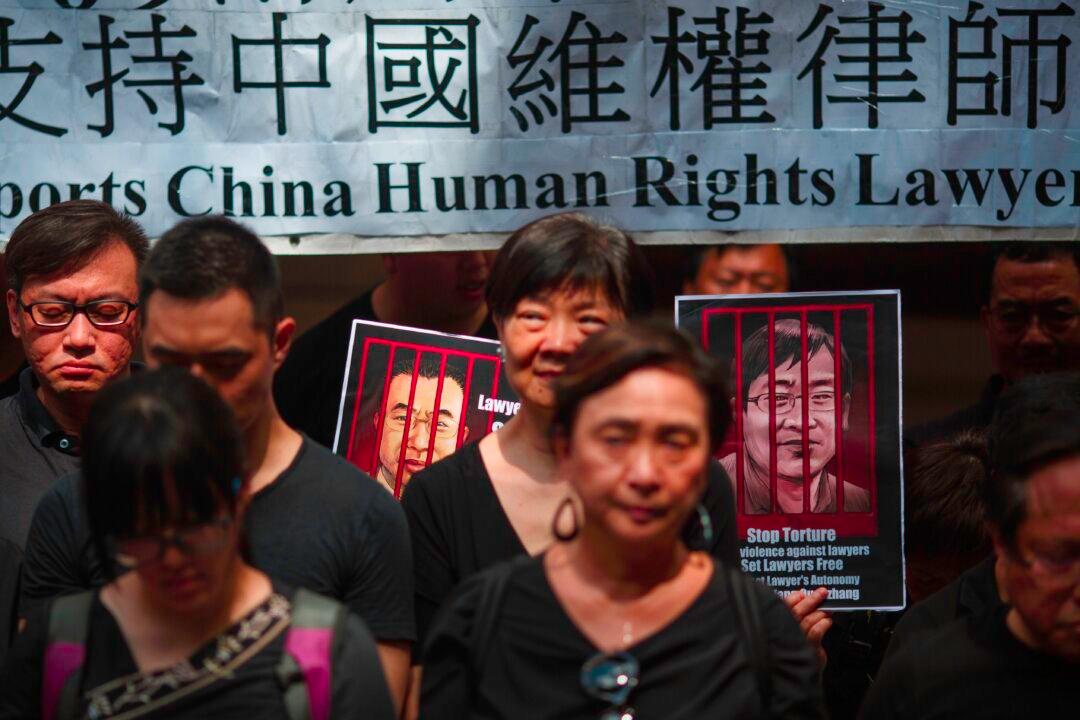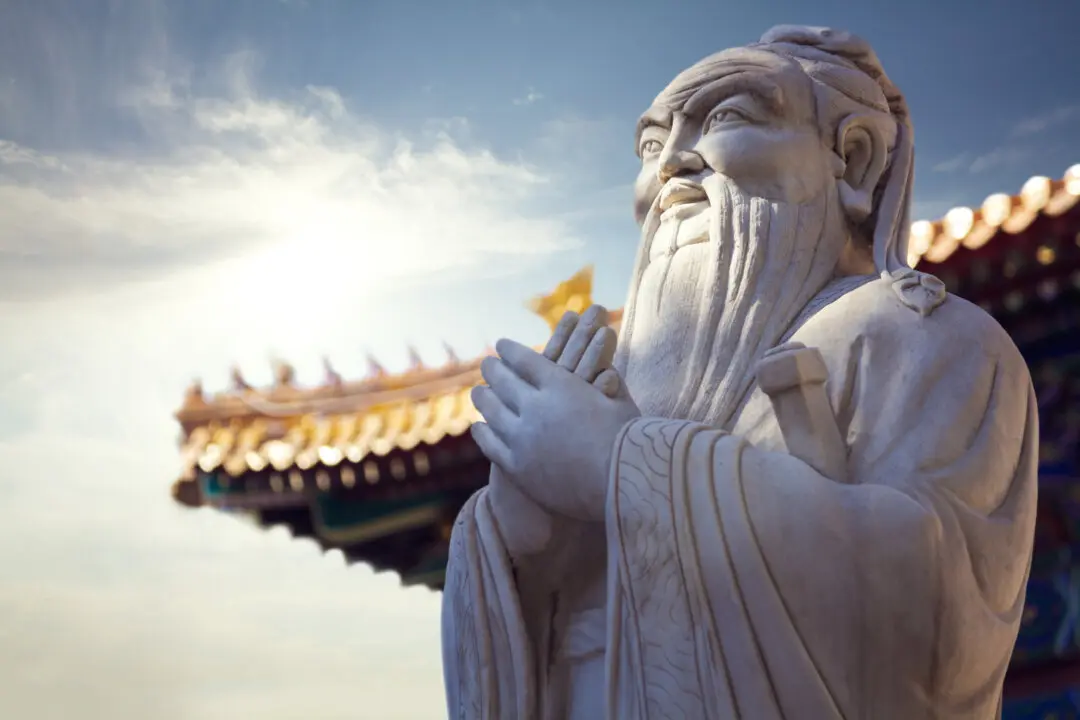The Epoch Times has recently obtained a report written by a Chinese legal expert summarizing the construction of socialist rule of law in China. It reveals the history of the CCP’s (Chinese Communist Party’s) legal systems and its rule of China by man instead of by law since 1949.
Xu’s report states that the regime developed its regulations, laws, and legal systems based on communist ideology. According to Xu, from 1949 to 2013, the CCP’s rule of law had experienced stages of initial establishment, destruction, restoration, and development.
The CCP’s Rule of Law Has Always Been Rule of ‘Instructions’ and ’Opinions’
Establishment: 1949–1956
The CCP’s legal system started from “Instructions,” some in the written form and some orally, as revealed by Xu in his report.The Complete Six Laws, which are also known as the Complete Six Codes, established by the Kuomintang (Nationalist Party of China) before 1949, included the Constitution, the Civil Code, the Code of Civil Procedure, the Code of Criminal Procedure, the Administrative Laws, and the Military Laws.
How did the CCP establish its own legal system after demolishing the existing law of the Republic of China?
The Instructions state, “If there is a law, follow the law; if there is no law, follow the policies; if there is neither a law nor a policy, follow the socialist legal ideology.”
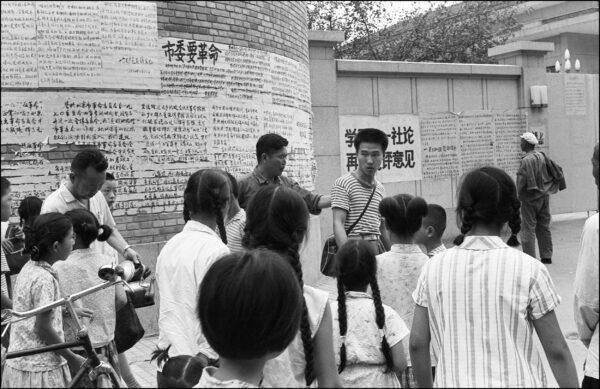
The Instructions further require that cadres be taught to master Marxism-Leninism-Mao Zedong Thought: “The judicial and legal organs should always educate and reform their judicial and legal cadres with the spirit of disrespecting and criticizing the Six Laws and all other reactionary laws and decrees of the KMT, with the spirit of disrespecting and criticizing all anti-people laws and decrees of the capitalist countries of Europe, America, and Japan. To achieve the goal of educating and reforming the cadres, they should be required to study and master the Marxism-Leninism-Mao Zedong Thought’s view of the state and the laws, policies, decrees, orders, regulations, and resolutions of the New Democracy [put forward by Mao].”
In other words, in the initial stage of the CCP’s legal system, the rule of law in China was primarily the party line of the CCP including its policies and ideology.
Destruction: 1957–Cultural Revolution
Mao soon became unhappy about the law and said: “The law always binds people’s hands and feet, but what we need now is to free our hands and feet. So [we] must break the bondage of the law,” according to Xu’s report.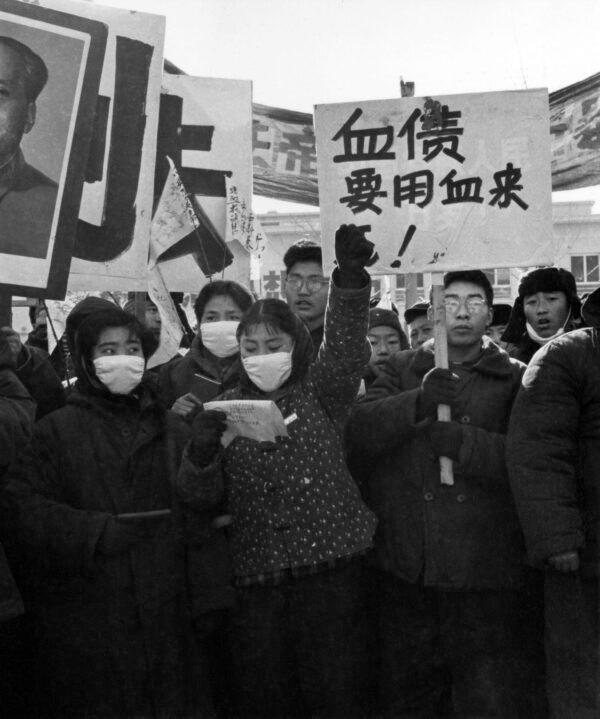
In 1956, Mao initiated “The Hundred Flowers Campaign,” which was an effort—as some observers noted—to identify, persecute, and silence critics of the CCP. Under this campaign, Chinese citizens were encouraged to express openly their opinions of the Communist Party. When people started to voice their opinions of the CCP, Mao cracked down on them, depriving them of their jobs, sending them to labor camps, and labeling them as “rightists.” The “Anti-Rightist Movement” then started in 1957.
As reported by The Epoch Times Chinese edition on Sept. 26, 2019, the CCP’s public information shows that in 1957, more than 3 million “rightist” intellectuals were persecuted nationwide. By 1978, the rightist label was removed from 550,000 intellectuals, leaving only 5,000 with the label. The other more than 2 million intellectuals that were persecuted during the anti-rightist campaigns remain missing. What happened to them? Where did they go?
Zhu Zheng, the author of the book “Year of Dingyou: On the CCP’s Anti-Rightist Struggle,” personally experienced and survived the Anti-Rightist Movement, in 1957, or year of Dingyou in the traditional Chinese calendar. He calls that year “a time of ‘disappearance’ of contemporary Chinese intellectuals.”
With the disappearance of the intellectual elite class, no one dared to oppose the opinions of the CCP or its leaders. In 1958, Mao launched “The Great Leap Forward” movement to “catch up with the UK and surpass the U.S.,” which led China into a great famine that killed 45 million Chinese people between 1958 and 1962, according to historian Frank Dikötter in his book “Mao’s Great Famine.”
In 1962, Mao, fearing that he was losing control—because of the opposition within the CCP after his political campaigns caused the numerous deaths—put forward something different. He said, “It seems that it doesn’t work without law. But we have our practice,” according to Xu’s report.
“Our practice” refers to the process of using internal documents passed around at CCP meetings as law. The report noted that it was the beginning of the legitimization of CCP internal documents as laws. Since then, CCP leaders and cadres have followed internal documents in their work and life, while the public follows editorials of the state-run People’s Daily as their guiding principles.
Restoration: 1978 (after Cultural Revolution)—1997
In 1989, Deng Xiaoping, the top leader of the CCP, gave the order to kill student protesters in Tiananmen Square. Sources say this was an oral order and Deng said, “Even if at the cost of 200,000 lives, it will be worth it in order to get 20 years of stability.” According to the sources, in April 1989, Deng summoned then-premier Li Peng, then-Party Secretary of Beijing Li Ximing, and then-mayor of Beijing Chen Xitong, to his home.This statement is not seen in the official “Resolution on the Suppression of Unrest and the Quelling of Anti-revolutionary Riots” passed by the CCP’s rubber-stamp legislature on July 6, 1989.
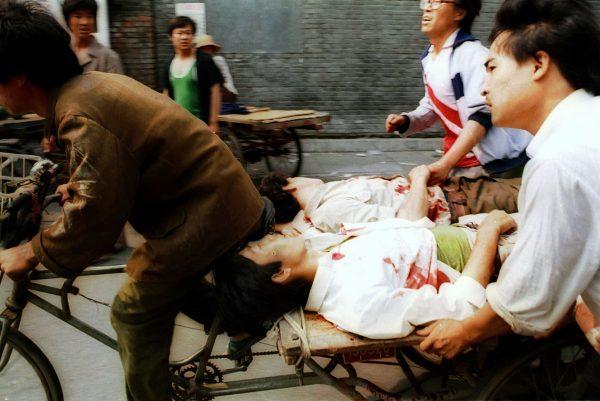
Before the 1989 suppression of the Tiananmen protest, Deng had personally initiated the 1983 “Stern Blow” (also known as “Strike Hard”) Anti-crime Campaign. The campaign is described as “the bloodiest chapter in post-Mao Chinese politics” by Murray Scot Tanner, professor of Chinese and East Asian Politics, Western Michigan University, in his research article “State Coercion and the Balance of Awe: The 1983–1986 ‘Stern Blows’ Anti-crime Campaign,” published in 2000.
Development: 1997–2004
After the 15th National Congress of the CCP in 1997, the regime stepped into the so-called “development of socialist rule of law.”Documents Reveal Jiang Zemin’s Manipulation of Laws to Persecute Falun Gong
Since 2006, when The Epoch Times first exposed the CCP’s live organ harvesting of Falun Gong practitioners, numerous international medical organizations, human rights lawyers, and investigators from many countries have conducted independent investigations in this regard.The genocide started with only a statement by then-CCP leader Jiang Zemin in a written interview with the French newspaper Le Figaro. On Oct. 25, 1999, Jiang told the French media that Falun Gong is an “evil cult,” and five days later, the CCP’s rubber-stamp legislature issued the “Resolution on Banning Heretic Cult Organizations, Guarding against and Punishing Heretic Cult Activities,” which the CCP claims to be the main “legal basis” for its persecution of Falun Gong.
Last year, The Epoch Times obtained exclusive access to a judicial opinion, classified as “top confidentiality,” and jointly issued by the CCP’s Supreme Court, the Supreme Procuratorate, the Ministry of Public Security, the Ministry of State Security, and the Ministry of Justice on Nov. 30, 2000.
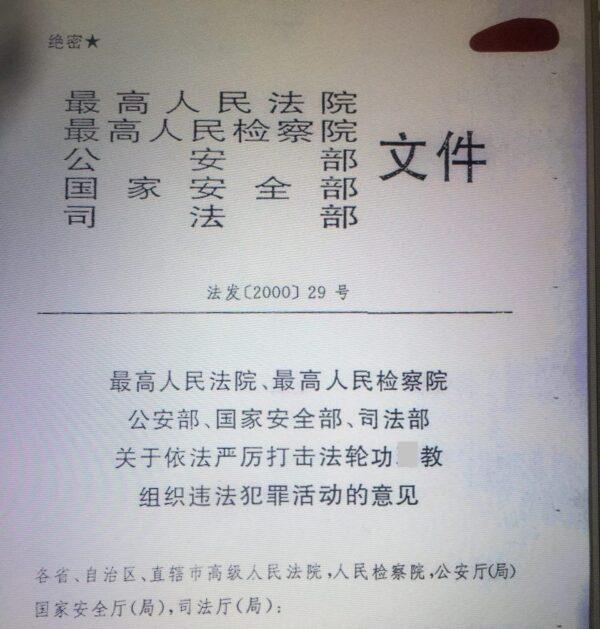
It is stated in the Opinion that “political and legal departments at all levels should firmly implement” the important instructions of Jiang to persecute Falun Gong. The five judiciary ministries or institutions of the CCP not only fabricated numerous charges against Falun Gong practitioners for their beliefs, but also claimed that the handling of cases involving Falun Gong practitioners is “highly political, legal, and policy-oriented,” requiring “close cooperation among the political and legal departments at all levels under the unified leadership of the Party Committee.”
Liu Ping (pseudonym), a Chinese lawyer, was shocked upon reading the Opinion.
“This is evidence that the CCP is guilty of genocide!” Liu exclaimed. He said that the issuance of this document by the five CCP legal institutions is itself a violation of the law because there is no law authorizing them to legislate.
The Epoch Times Chinese edition reported on this document and interviewed the lawyer on Oct. 22, 2020.
Documents Reveal the CCP’s Rule of Law Targets Both Chinese and Foreign Countries
A recent example of the CCP’s rule of law is the Anti-Foreign Sanctions Law, which was passed by the CCP’s rubber-stamp legislature on June 10. The purpose of the law is to counter Western sanctions, primarily those of the United States.Chinese leader Xi Jinping “officially” introduced the law in November 2020 during a speech delivered at the Central Working Conference on the Comprehensive Rule of Law. He instructed that “we should strengthen the rule of law and make use of the means of the law” and “make comprehensive use of legislation, law enforcement, and justice to carry out the struggle.” Therefore, following Xi’s speech, in March 2021, the CCP’s rubber-stamp legislature decided to work on this and quickly passed the legislation in June.
China current affairs commentator Li Linyi told The Epoch Times Chinese edition in an interview: “The documents exposed by The Epoch Times reveal that the CCP’s laws are the product of the leadership’s instructions, the CCP’s internal documents, and other confidential documents summarizing its construction of rule of law, which proves that ruling the country by law has been a lie of the CCP.”
